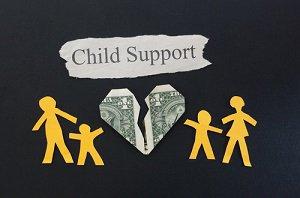Recent Blog Posts
Cooperating With a Guardian ad Litem
Posted on January 27, 2016 in Guardian ad Litem
 It is all too familiar to most people that legal proceedings related to children can quickly deteriorate into ugly, contentious battles. Although it can happen for many reasons, unfortunately, it occurs most often when parents cannot separate themselves from the emotion of the situation, allowing their feelings for each other to cloud their judgment regarding the child’s best interests. Despite recent changes to the statute in Illinois regarding child custody—now called the allocation of parental responsibilities—there is no way to entirely prevent acrimonious disputes. To help the process, however, a family court has the authority under law to appoint a guardian ad litem, an attorney who serves as an extension of the court.
It is all too familiar to most people that legal proceedings related to children can quickly deteriorate into ugly, contentious battles. Although it can happen for many reasons, unfortunately, it occurs most often when parents cannot separate themselves from the emotion of the situation, allowing their feelings for each other to cloud their judgment regarding the child’s best interests. Despite recent changes to the statute in Illinois regarding child custody—now called the allocation of parental responsibilities—there is no way to entirely prevent acrimonious disputes. To help the process, however, a family court has the authority under law to appoint a guardian ad litem, an attorney who serves as an extension of the court.
The Guardian ad Litem’s Duties
According to the Illinois Marriage and Dissolution of Marriage Act, a guardian ad litem (GAL) must be an appropriately trained and certified attorney, who is appointed to assist the court in understanding the circumstance relevant to a child-related legal matter. A GAL may be asked to help in the allocation of parental responsibilities, proceedings for parenting time disputes, relocations, and any other matter in which the child’s best interest are of primary concern.
Continue Reading ››
What is a Parental Relocation?
Posted on January 20, 2016 in Child Custody and Support
 As you try to provide for your children, it is important to stay aware of any and all potential opportunities that may arise. Sometimes, these opportunities may require you to move out of the area, and in some cases, to a different state. When children are not a consideration, it is relatively easy to pick up and move, and start a life in a new location. When a custody order—or a parenting plan under the updated law—is involved, you will need to understand what the law requires before you attempt a relocation.
As you try to provide for your children, it is important to stay aware of any and all potential opportunities that may arise. Sometimes, these opportunities may require you to move out of the area, and in some cases, to a different state. When children are not a consideration, it is relatively easy to pick up and move, and start a life in a new location. When a custody order—or a parenting plan under the updated law—is involved, you will need to understand what the law requires before you attempt a relocation.
Relocation Defined
The same measure that updated the state’s provisions on child custody also clarified what constitutes a relocation. Under the previous version of the law, only an out-of-state move required special consideration. Beginning this year, however, the updated statute provides direction on what a parental relocation is and the steps necessary in completing one.
Continue Reading ››
Mediation Allows You to Express Yourself
Posted on January 18, 2016 in Mediation
 As form of dispute resolution that is available in virtually every type of civil proceeding, mediation typically allows competing parties the opportunity to hammer out an agreement that reasonably meets the needs of everyone involved. This holds true in a large number of arenas, including personal injury concerns, business disputes, and, of course, divorce and family law. Perhaps the biggest advantage to seeking mediation in your divorce or child-related matter your ability to be clearly heard throughout the process, a luxury not necessarily afforded in many court-handled cases.
As form of dispute resolution that is available in virtually every type of civil proceeding, mediation typically allows competing parties the opportunity to hammer out an agreement that reasonably meets the needs of everyone involved. This holds true in a large number of arenas, including personal injury concerns, business disputes, and, of course, divorce and family law. Perhaps the biggest advantage to seeking mediation in your divorce or child-related matter your ability to be clearly heard throughout the process, a luxury not necessarily afforded in many court-handled cases.
Strict Legal Guidelines
While the statutes regarding divorce and family law are constantly being updated to allow for more individual consideration, the fact of the matter is that a court can only do so much. A presiding judge is expected to take into account an ever-growing list of circumstantial considerations, which may include those related to each spouse and the children involved. To truly appreciate a family’s situation, a judge would need to review the case for hours and hours, discussing intimate details with each party, and doing so is clearly not a realistic expectation. Thus, court decisions are often based on a very limited understanding of the facts, and only those each party remembers to include in presented documents.
Continue Reading ››
Understanding the Illinois Child Support Law
Posted on January 13, 2016 in Child Custody and Support
 If you are a divorced, separated, or unmarried parent, you may be aware that many of the laws regarding child custody and parental visitation have been changed in Illinois beginning this year. To the surprise of some around the state, however, the statutes regarding child support have yet to be updated. This means that the guidelines that have been in place for a number of years will remain in effect for the foreseeable future.
If you are a divorced, separated, or unmarried parent, you may be aware that many of the laws regarding child custody and parental visitation have been changed in Illinois beginning this year. To the surprise of some around the state, however, the statutes regarding child support have yet to be updated. This means that the guidelines that have been in place for a number of years will remain in effect for the foreseeable future.
Who Pays Support?
According to the Illinois Marriage and Dissolution of Marriage Act, either or both parents may be required to contribute toward the financial support of their child. These payments are intended to help provide for the child’s most basic needs, including shelter, food, clothing, and day-to-day needs. In practice, however, if you are a parent who has not been granted the majority of the parenting time with your child, you will likely be ordered to make support payments.
Continue Reading ››
Begin Discussing Your Parenting Responsibilities
Posted on January 11, 2016 in Child Custody and Support
 When it becomes evident that you are headed for divorce, it is important to start planning for the process. You will need to have a good understanding of your current financial situation and what constitutes your ideal post-divorce scenario. Depending upon the circumstances of your relationship with your spouse, you may be able begin negotiating the terms of your divorce agreement. At first, of course, such discussions would need to be relatively informal, but you and your spouse can at least start talking about the future. The conversation is even more important if you have a child or children together, so that you can both better understand the role you are to play in your child’s upbringing.
When it becomes evident that you are headed for divorce, it is important to start planning for the process. You will need to have a good understanding of your current financial situation and what constitutes your ideal post-divorce scenario. Depending upon the circumstances of your relationship with your spouse, you may be able begin negotiating the terms of your divorce agreement. At first, of course, such discussions would need to be relatively informal, but you and your spouse can at least start talking about the future. The conversation is even more important if you have a child or children together, so that you can both better understand the role you are to play in your child’s upbringing.
Determine a Primary Residence
Among your first child-related concerns should be which parent will assume responsibility for a majority of the parenting time. This is an important consideration in determining where the child will attend school. The parent who does not have the majority of the parenting time will most likely be responsible for paying child support. Just because one of you has less parenting time than the other is not considered to be a reflection on your parental rights; rather it is more of a logistical determination.
Continue Reading ››
Life Insurance as Security in a Divorce Case
Posted on January 08, 2016 in Spousal Maintenance
 For many individuals, it takes a divorce to highlight just how financially dependent a person may be on his or her spouse. This, of course, may be all the more true if you are also trying to raise children. It is for exactly such reasons that the divorce laws in Illinois include provisions for spousal maintenance and child support. These orders are issued, when appropriate, by the court to distribute the financial burden more equitably between you and your ex-spouse. But, what would happen if your ex-spouse was no longer around to provide support for you or your children? Would you be able to get by? If the answer is no, you may want to speak with family law attorney about including life insurance requirements in your divorce agreement.
For many individuals, it takes a divorce to highlight just how financially dependent a person may be on his or her spouse. This, of course, may be all the more true if you are also trying to raise children. It is for exactly such reasons that the divorce laws in Illinois include provisions for spousal maintenance and child support. These orders are issued, when appropriate, by the court to distribute the financial burden more equitably between you and your ex-spouse. But, what would happen if your ex-spouse was no longer around to provide support for you or your children? Would you be able to get by? If the answer is no, you may want to speak with family law attorney about including life insurance requirements in your divorce agreement.
Why Life Insurance?
A life insurance policy is designed to pay financial benefits to the named beneficiaries of a policyholder upon the policyholder’s death. These funds are often used to cover funeral costs, pay down debts, or to simply maintain a similar lifestyle. Married individuals will commonly name their spouse as the primary beneficiary to help provide a level of security in the event of their death.
Continue Reading ››
Dad of 13 Owes $50,000 in Child Support Payments
Posted on December 31, 2015 in Child Custody and Support
 In today’s world, it is not uncommon for an unmarried couple to have a child together. In fact, many couples who are not married intentionally procreate, creating an effective, though not legally-protected family unit. When such a relationship ends, or if there was never much of relationship from the beginning, one parent—and often the parent with less parenting responsibilities—is generally required to make child support payments to assist with meeting the child’s basic needs.
In today’s world, it is not uncommon for an unmarried couple to have a child together. In fact, many couples who are not married intentionally procreate, creating an effective, though not legally-protected family unit. When such a relationship ends, or if there was never much of relationship from the beginning, one parent—and often the parent with less parenting responsibilities—is generally required to make child support payments to assist with meeting the child’s basic needs.
Once an order for child support has been entered, every missed payment is logged by a state agency tasked with support enforcement. It is understandable, to a certain extent, that a supporting parent may occasionally have trouble meeting his or her obligations. Once in a while, though, you will hear a story in which back-payments of child support have gotten completely out of hand.
Continue Reading ››
Coparenting: The New Norm for Child Custody
Posted on December 28, 2015 in Child Custody and Support
 We have all heard it a hundred times. Someone you know is going through a nasty divorce and, while they may spare you the details, it is often clear that your friend is determined to “win” at all costs. He or she feels wronged by the other spouse and may go to great lengths to get what feels like justice. In many cases, “winning” or “losing” is a financial or property value outcome, with the “winning” spouse getting a satisfactory share of the marital estate. For parents, however, the stakes are even higher, and in too many cases, children are used as leverage in the raging war between divorcing spouses. Thanks to recent updates to the Illinois Marriage and Dissolution of Marriage Act, parents will be expected to adhere to a higher standard of cooperation and to remain invested in serving the child’s best interests, no matter what the relationship between the adults may be.
We have all heard it a hundred times. Someone you know is going through a nasty divorce and, while they may spare you the details, it is often clear that your friend is determined to “win” at all costs. He or she feels wronged by the other spouse and may go to great lengths to get what feels like justice. In many cases, “winning” or “losing” is a financial or property value outcome, with the “winning” spouse getting a satisfactory share of the marital estate. For parents, however, the stakes are even higher, and in too many cases, children are used as leverage in the raging war between divorcing spouses. Thanks to recent updates to the Illinois Marriage and Dissolution of Marriage Act, parents will be expected to adhere to a higher standard of cooperation and to remain invested in serving the child’s best interests, no matter what the relationship between the adults may be.
Continue Reading ››
In the Spirit of the Holidays, Consider Mediation
Posted on December 23, 2015 in Mediation
 Issues of family law, including divorce, parental responsibility concerns, and child support, can become extremely contentious and stressful. Too often, the opposing parties become so focused on “winning” or proving a point that they lose sight of the real matters at hand. This can be especially tragic when children are caught in the middle, as they often become collateral damage when they should be the primary focus.
Issues of family law, including divorce, parental responsibility concerns, and child support, can become extremely contentious and stressful. Too often, the opposing parties become so focused on “winning” or proving a point that they lose sight of the real matters at hand. This can be especially tragic when children are caught in the middle, as they often become collateral damage when they should be the primary focus.
If you are in the midst of an ongoing legal struggle, there is, unfortunately, no quick fix. But despite being a popular Hollywood cliché, you may choose to take some inspiration from the spirit of the Christmas season. Perhaps, instead of continuing to find ways to “win,” consider proposing a more cooperative approach to settling your differences. For many families, mediation may be just the solution they need.
Continue Reading ››
Thinking About Divorce May Improve Your Marriage
Posted on December 21, 2015 in Divorce
 For many married couples, divorce is a dirty word. The mere mention of it can lead individuals to begin fearing that the end of their marriage is imminent. Even just thinking about divorce can feel dangerous to many, as they begin to question their ability to fix whatever problems they may be experiencing. A recent study suggests that the opposite might, in fact, be true, and that giving some thought to divorce can actually improve a couple’s marriage.
For many married couples, divorce is a dirty word. The mere mention of it can lead individuals to begin fearing that the end of their marriage is imminent. Even just thinking about divorce can feel dangerous to many, as they begin to question their ability to fix whatever problems they may be experiencing. A recent study suggests that the opposite might, in fact, be true, and that giving some thought to divorce can actually improve a couple’s marriage.
Thousands Surveyed
Funded by Brigham Young University in Utah, and conducted by researchers from six different universities including BYU, the study surveyed 3,000 married individuals between the ages of 25 and 55 from around the United States. The results indicated that more than half of married people have had thoughts about divorce, either recently or in the past. Most of the thoughts were described by researchers as more “soft” than “serious,” and that a large number of those who think about divorce want to work on the marriage.
Continue Reading ››







 It is all too familiar to most people that legal proceedings related to children can quickly deteriorate into ugly, contentious battles. Although it can happen for many reasons, unfortunately, it occurs most often when parents cannot separate themselves from the emotion of the situation, allowing their feelings for each other to cloud their judgment regarding the child’s best interests. Despite recent changes to the statute in Illinois regarding child custody—now called the allocation of parental responsibilities—there is no way to entirely prevent acrimonious disputes. To help the process, however, a family court has the authority under law to appoint a
It is all too familiar to most people that legal proceedings related to children can quickly deteriorate into ugly, contentious battles. Although it can happen for many reasons, unfortunately, it occurs most often when parents cannot separate themselves from the emotion of the situation, allowing their feelings for each other to cloud their judgment regarding the child’s best interests. Despite recent changes to the statute in Illinois regarding child custody—now called the allocation of parental responsibilities—there is no way to entirely prevent acrimonious disputes. To help the process, however, a family court has the authority under law to appoint a  As you try to provide for your children, it is important to stay aware of any and all potential opportunities that may arise. Sometimes, these opportunities may require you to move out of the area, and in some cases, to a different state. When children are not a consideration, it is relatively easy to pick up and move, and start a life in a new location. When a
As you try to provide for your children, it is important to stay aware of any and all potential opportunities that may arise. Sometimes, these opportunities may require you to move out of the area, and in some cases, to a different state. When children are not a consideration, it is relatively easy to pick up and move, and start a life in a new location. When a  As form of dispute resolution that is available in virtually every type of civil proceeding, mediation typically allows competing parties the opportunity to hammer out an agreement that reasonably meets the needs of everyone involved. This holds true in a large number of arenas, including personal injury concerns, business disputes, and, of course,
As form of dispute resolution that is available in virtually every type of civil proceeding, mediation typically allows competing parties the opportunity to hammer out an agreement that reasonably meets the needs of everyone involved. This holds true in a large number of arenas, including personal injury concerns, business disputes, and, of course,  If you are a divorced, separated, or unmarried parent, you may be aware that many of the laws regarding child custody and parental visitation have been changed in Illinois beginning this year. To the surprise of some around the state, however, the statutes regarding
If you are a divorced, separated, or unmarried parent, you may be aware that many of the laws regarding child custody and parental visitation have been changed in Illinois beginning this year. To the surprise of some around the state, however, the statutes regarding  When it becomes evident that you are headed for divorce, it is important to start planning for the process. You will need to have a good understanding of your current financial situation and what constitutes your ideal post-divorce scenario. Depending upon the circumstances of your relationship with your spouse, you may be able begin negotiating the terms of your divorce agreement. At first, of course, such discussions would need to be relatively informal, but you and your spouse can at least start talking about the future. The conversation is even more important if you have a child or children together, so that you can both better understand
When it becomes evident that you are headed for divorce, it is important to start planning for the process. You will need to have a good understanding of your current financial situation and what constitutes your ideal post-divorce scenario. Depending upon the circumstances of your relationship with your spouse, you may be able begin negotiating the terms of your divorce agreement. At first, of course, such discussions would need to be relatively informal, but you and your spouse can at least start talking about the future. The conversation is even more important if you have a child or children together, so that you can both better understand  For many individuals, it takes a divorce to highlight just how financially dependent a person may be on his or her spouse. This, of course, may be all the more true if you are also trying to raise children. It is for exactly such reasons that the divorce laws in Illinois include provisions for spousal maintenance and
For many individuals, it takes a divorce to highlight just how financially dependent a person may be on his or her spouse. This, of course, may be all the more true if you are also trying to raise children. It is for exactly such reasons that the divorce laws in Illinois include provisions for spousal maintenance and  In today’s world, it is not uncommon for an unmarried couple to have a child together. In fact, many couples who are not married intentionally procreate, creating an effective, though not legally-protected family unit. When such a relationship ends, or if there was never much of relationship from the beginning, one parent—and often the parent with less parenting responsibilities—is generally required to make
In today’s world, it is not uncommon for an unmarried couple to have a child together. In fact, many couples who are not married intentionally procreate, creating an effective, though not legally-protected family unit. When such a relationship ends, or if there was never much of relationship from the beginning, one parent—and often the parent with less parenting responsibilities—is generally required to make  We have all heard it a hundred times. Someone you know is going through a nasty divorce and, while they may spare you the details, it is often clear that your friend is determined to “win” at all costs. He or she feels wronged by the other spouse and may go to great lengths to get what feels like justice. In many cases, “winning” or “losing” is a financial or property value outcome, with the “winning” spouse getting a satisfactory share of the marital estate. For parents, however, the stakes are even higher, and in too many cases,
We have all heard it a hundred times. Someone you know is going through a nasty divorce and, while they may spare you the details, it is often clear that your friend is determined to “win” at all costs. He or she feels wronged by the other spouse and may go to great lengths to get what feels like justice. In many cases, “winning” or “losing” is a financial or property value outcome, with the “winning” spouse getting a satisfactory share of the marital estate. For parents, however, the stakes are even higher, and in too many cases,  Issues of family law, including divorce,
Issues of family law, including divorce,  For many married couples, divorce is a dirty word. The mere mention of it can lead individuals to begin fearing that the end of their marriage is imminent. Even just thinking about divorce can feel dangerous to many, as they begin to question their ability to fix whatever problems they may be experiencing. A recent study suggests that the opposite might, in fact, be true, and that giving some thought to
For many married couples, divorce is a dirty word. The mere mention of it can lead individuals to begin fearing that the end of their marriage is imminent. Even just thinking about divorce can feel dangerous to many, as they begin to question their ability to fix whatever problems they may be experiencing. A recent study suggests that the opposite might, in fact, be true, and that giving some thought to 